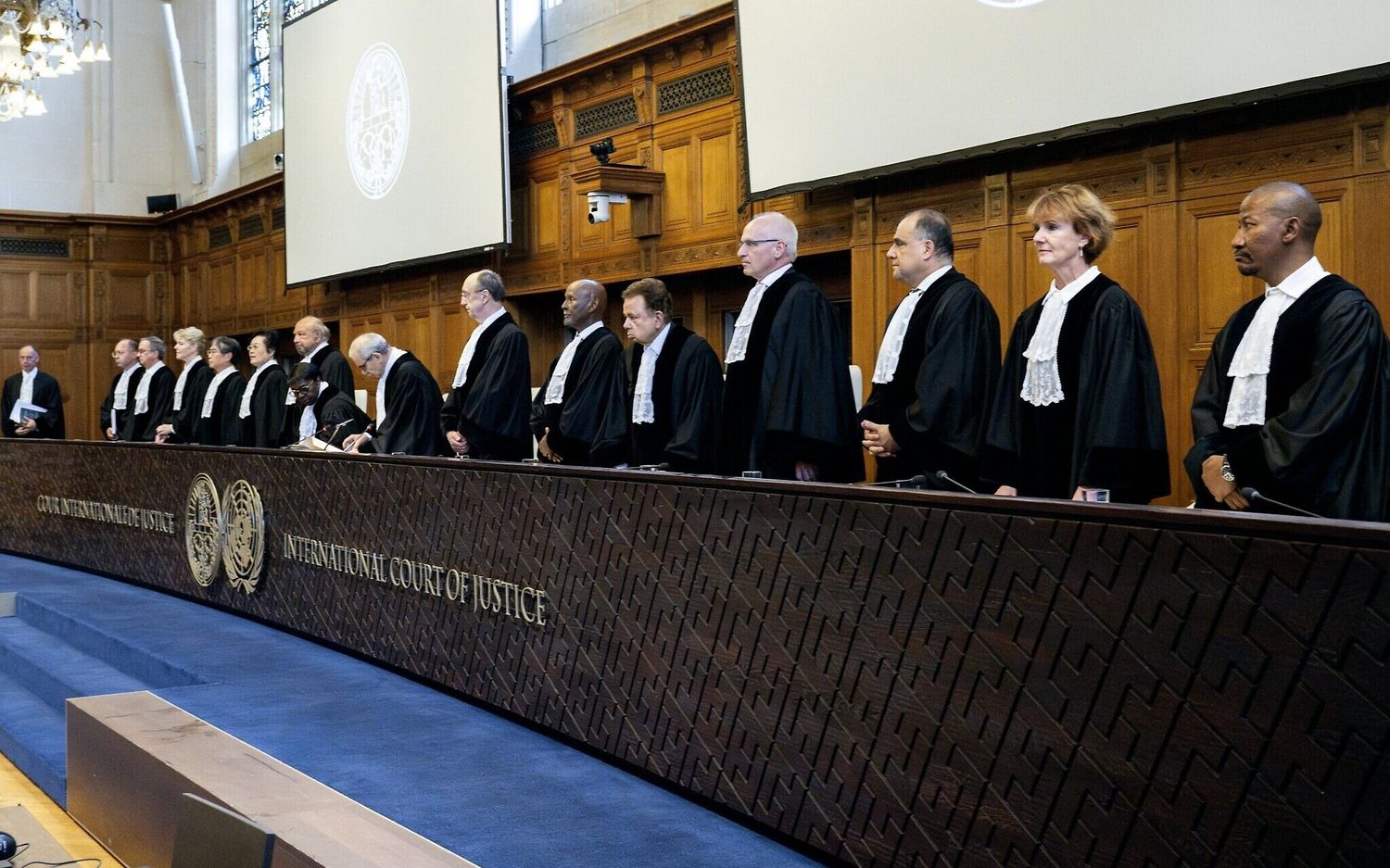
The International Court of Justice (ICJ), often called the World Court, serves as the principal judicial organ of the United Nations. Established in 1945, it settles legal disputes between states and gives advisory opinions on international legal issues. Located in The Hague, Netherlands, the ICJ plays a crucial role in maintaining international peace and security. With 15 judges elected for nine-year terms, the court ensures representation from the world's major legal systems. But how much do you really know about the ICJ? From its landmark cases to its unique procedures, this blog post will uncover 50 intriguing facts about this pivotal institution. Get ready to dive into the world of international law and discover what makes the ICJ so essential.
What is the International Court of Justice (ICJ)?
The International Court of Justice (ICJ), often called the World Court, is the principal judicial organ of the United Nations. It settles legal disputes between states and gives advisory opinions on international legal issues.
- Established in 1945, the ICJ began its work in 1946.
- The court is located in The Hague, Netherlands.
- It replaced the Permanent Court of International Justice.
- The ICJ operates under a statute that is an integral part of the UN Charter.
- It has 15 judges elected for nine-year terms by the UN General Assembly and Security Council.
Structure and Functioning of the ICJ
Understanding how the ICJ operates helps in grasping its significance in international law.
- Judges must come from different countries to ensure diverse representation.
- They can be re-elected for multiple terms.
- The President and Vice-President of the court are elected every three years.
- The court's official languages are English and French.
- The ICJ can only hear cases between states, not individuals or organizations.
Jurisdiction and Cases
The ICJ's jurisdiction is a crucial aspect of its role in maintaining international peace and security.
- States must consent to the ICJ's jurisdiction for a case to proceed.
- The court handles contentious cases and advisory proceedings.
- Contentious cases involve legal disputes between states.
- Advisory proceedings provide legal opinions to UN bodies and agencies.
- The ICJ's decisions are binding, but it has no enforcement power.
Notable Cases and Decisions
The ICJ has presided over many significant cases that have shaped international law.
- The Corfu Channel case (1947-1949) was the first contentious case heard by the ICJ.
- In 1986, the ICJ ruled in favor of Nicaragua against the United States for illegal military activities.
- The court's advisory opinion on the legality of nuclear weapons (1996) remains influential.
- In 2004, the ICJ ruled that Israel's West Bank barrier violated international law.
- The ICJ's decision in the Bosnia and Herzegovina vs. Serbia and Montenegro case (2007) addressed genocide.
The Role of the ICJ in International Relations
The ICJ plays a vital role in fostering peaceful international relations and upholding the rule of law.
- It helps prevent conflicts by providing a legal avenue for dispute resolution.
- The court's advisory opinions guide international organizations and states.
- The ICJ promotes the development of international law through its rulings.
- It contributes to the peaceful coexistence of states by clarifying legal principles.
- The court's decisions influence international treaties and conventions.
Challenges and Criticisms
Despite its importance, the ICJ faces several challenges and criticisms.
- Some states refuse to recognize the court's jurisdiction.
- The ICJ lacks enforcement mechanisms to ensure compliance with its rulings.
- Political considerations can affect the court's decisions.
- The lengthy duration of cases can delay justice.
- Limited resources and funding constrain the court's operations.
The ICJ and Human Rights
The ICJ also plays a role in the protection and promotion of human rights.
- It addresses human rights issues through its rulings on state conduct.
- The court's advisory opinions often highlight human rights principles.
- The ICJ collaborates with other international courts and tribunals on human rights matters.
- Its decisions contribute to the development of international human rights law.
- The court's rulings can influence national courts and legal systems.
The Future of the ICJ
Looking ahead, the ICJ's role in international law and relations will continue to evolve.
- Technological advancements may impact the court's operations.
- Increasing global interdependence will likely lead to more cases.
- The ICJ may face new challenges related to cyber law and digital sovereignty.
- Climate change and environmental disputes could become more prominent in its docket.
- The court's ability to adapt to changing international dynamics will be crucial.
Interesting Facts about the ICJ
Here are some lesser-known yet fascinating facts about the ICJ.
- The Peace Palace, where the ICJ is housed, was funded by Andrew Carnegie.
- The court's first President was José Gustavo Guerrero from El Salvador.
- The ICJ has a library with over a million volumes of legal texts.
- The court's emblem features a globe and olive branches, symbolizing peace and justice.
- The ICJ's hearings are open to the public, promoting transparency.
The ICJ and Global Peace
The ICJ's contributions to global peace and stability cannot be overstated.
- It helps resolve disputes that could escalate into armed conflicts.
- The court's rulings reinforce the principles of international law.
- The ICJ's advisory opinions assist in the peaceful resolution of complex issues.
- Its work supports the UN's mission of maintaining international peace and security.
- The ICJ's existence underscores the importance of legal frameworks in global governance.
Final Thoughts on the ICJ
The International Court of Justice (ICJ) plays a crucial role in maintaining global peace and justice. Established in 1945, it settles disputes between states and provides advisory opinions on international legal issues. The court's decisions, though binding, rely on the cooperation of nations for enforcement. With 15 judges elected for nine-year terms, the ICJ ensures diverse representation from around the world. Cases range from territorial disputes to human rights violations, showcasing its broad jurisdiction. The ICJ's work underscores the importance of international law in fostering cooperation and resolving conflicts. Understanding the ICJ's functions and significance helps appreciate its impact on global governance. The court remains a vital institution in promoting justice and upholding the rule of law on an international scale.
Was this page helpful?
Our commitment to delivering trustworthy and engaging content is at the heart of what we do. Each fact on our site is contributed by real users like you, bringing a wealth of diverse insights and information. To ensure the highest standards of accuracy and reliability, our dedicated editors meticulously review each submission. This process guarantees that the facts we share are not only fascinating but also credible. Trust in our commitment to quality and authenticity as you explore and learn with us.


